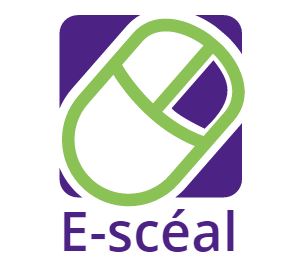Absence of pupil tracking ‘hinders research’ [IrishExaminer]
- Published: 04 September 2010
THE absence of a tracking system to follow the progress of pupils from the start of primary school is hampering work that could help improve education policies, according to a leading researcher.
Since 1991, the Department of Education can monitor patterns of second-level attendance and levels of disadvantage through a database used to calculate dropout rates and other statistics.
However, despite calls from various interest groups over many years and a promise in the 2007 Programme for Government, no database has yet been set up to track primary pupils.
Economic and Social Research Institute senior researcher Dr Selina McCoy said the absence of such a database hinders the ability to collect important information.
Full Story: www.irishexaminer.com
‘8,000 jobs lost’ as State budgets unspent [IrishExaminer]
- Published: 04 September 2010
THE Government’s failure to spend more than €800 million of its capital budget so far this year has cost 8,000 construction jobs, industry leaders have claimed.
The shortfall comes across all Government departments up to the end of August, when €3.4 billion was to have been spent. Among the departments behind target on capital budgets is the Department of Transport, which has a €275m, or 25%, under-spend this year.
John Gormley’s Department of Environment has not used €244m, almost one-third of its capital spending target, for the first eight months of 2010.
With around 10 jobs created with every €1m invested in capital projects, the Construction Industry Federation (CIF) said these latest exchequer spending figures represent a missed opportunity for the Government to stimulate economic activity by providing vital infrastructure.
Full Story: www.irishexaminer.com
Ireland bottom of schoolbooks league [IrishExaminer]
- Published: 04 September 2010
IRELAND is among a small number of EU countries where the Government does not contribute some or all the costs of children’s schoolbooks.
In Britain, Northern Ireland, Denmark, the Netherlands, Sweden and parts of Germany and Spain, the state pays for textbooks from primary through to second-level.
But despite bills of more than €350 for some students in second-level, particularly those starting first-year and fifth-year, Ireland is one of just two countries – the other is Portugal – out of more than a dozen analysed by RTÉ News where parents bear the full cost.
Irish primary and second-level schools are encouraged to use a book grant from the Department of Education to set up book-rental schemes whereby a nominal amount is paid each year towards books bought by the school, given to parents at the beginning of each year and returned to be handed on to the next class the following year. The department pays primary schools €11 for each child towards book costs, with those supported under a scheme for the most disadvantaged schools getting €21 per pupil. Equivalent sums of €24 and €39 are payable to second-level schools, but they are free also to use the money to expand libraries or other reading facilities.
Full Story: www.irishexaminer.com
Pay agreement [IrishExaminer]
- Published: 03 September 2010
A SPECIAL delegate conference of the Teachers’ Union of Ireland is to be held on September 25 to decide its next move in relation to the rejected Croke Park deal.
The union’s executive will decide today what proposals will be put to the meeting. The Association of Secondary Teachers Ireland, whose members also rejected the public service pay agreement, has organised a meeting of its central executive council for tomorrow week to consider talks with the Department of Education.
Call for broader business teaching [IrishExaminer]
- Published: 03 September 2010
Dublin: The president of the Institute of Certified Public Accountants in Ireland has called for a broadening of the business stream taught in second-level schools to include a stronger focus on the formal teaching of entrepreneurship.
"While much of Ireland’s economic success story over the past 20 years has been built on the back of foreign direct investment it is widely recognised that the days of big projects landing in Ireland and creating thousands of jobs will be far more difficult in the future. In the future we will need to focus on our own strengths to create new companies within Ireland which will drive our economic success. That means we have to ensure that future generations see entrepreneurship as a legitimate career choice," said Geoff Meagher, President of the Institute of Certified Public Accountants in Ireland.
Full Story: www.irishexaminer.com






















































